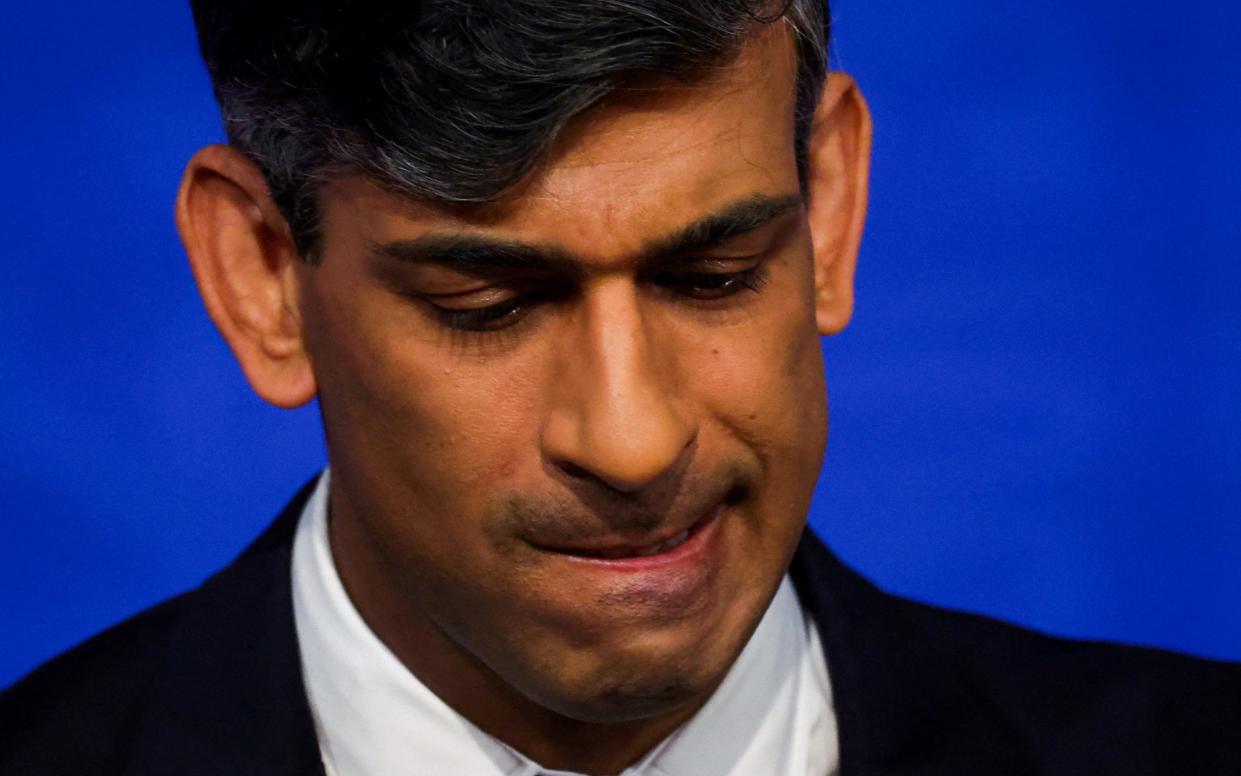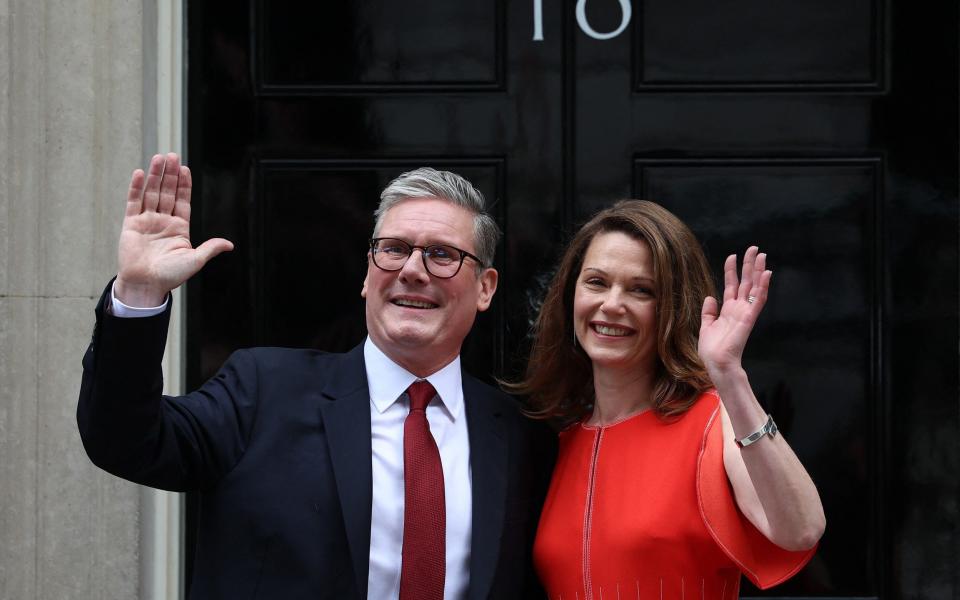From Sunak clinging on to Farage taking over – what’s next for the Tories?

The longer the 2024 general election dragged on, the bleaker the prospects for the Conservative Party became.
When Rishi Sunak first surprised the nation by asking the King to dissolve Parliament, apparently catching Reform on the hop, some Tories were able to persuade themselves they had a chance of winning.
When Nigel Farage executed a U-turn on Clacton pier to announce he would be standing, the most optimistic prediction was that the Conservative Party could still lose with its dignity intact.
Those two scenarios have since gone up in smoke.
After taking the party to the worst result in its history, Rishi Sunak resigned as Prime Minister and announced that he would stand down as Tory leader.
Reform UK garnered over four million votes, although only translating that share into four seats, with Nigel Farage finally becoming an MP at the eighth attempt.
Sir Keir Starmer, the new Prime Minister, told the nation they “can look forward again” and walk out into “the sunlight of hope”, at his victory speech in central London.

Were the Conservatives merely lambs being led to the slaughter or were they a bunch of dinosaurs standing around, chewing vegetation and becoming dimly aware of a fireball growing larger in the sky?
Paul Goodman, a senior fellow at Policy Exchange, believes that a lot depends on four key variables: how many seats the Tories have; who is left; whether Nigel Farage becomes an MP; and if Boris Johnson both wants, and is allowed, to throw his hat in the ring for a leadership contest.
New leader
Sunak, having led the Conservative Party to a historic defeat, has fallen on his sword. “I can’t imagine him wanting to remain leader or being allowed to,” said Iain Dale, the political commentator.
The number one prerequisite of his successor is that they are still an MP. This means the field of possible contenders has been reduced after senior Tories such as Penny Mordaunt lost their seats. “A lot depends on who is left to pick up the pieces,” says Dale. “A new leader will need to revitalise the policy offering, be popular with the public and be good with the media. There aren’t many Tory MPs that tick all three of those boxes.”
Goodman added: “Any new leader will have to articulate who the Conservative Party is going to stand for.”
“It stood for a clearly defined set of people under David Cameron. It stood for quite a large portion of society for a while under Boris Johnson. More recently it has just represented a series of vague ‘people’s revolts’ [of populist policies].”
Given the severity of the defeat, there is a chance the leadership contest becomes a straight-up fistfight between Tom Tugendhat in the blue corner and Kemi Badenoch in the even bluer corner with the latter currently the odds-on favourite to emerge as “Queen of the Ashes”.
Caretaker leader
There are increasing whispers among Tory MPs that the fallout from the election is so ruinous it would be better for the Conservative party to be handed over to a caretaker leader until the dust settles. Among the names being bandied around are Priti Patel and Oliver Dowden.
The downside to this plan is that any such caretaker’s authority would constantly be undermined by those in the party jostling for position and the general public might not take a lame duck opposition leader seriously.
“Frequent changes in leadership haven’t improved the Conservative party’s fortunes much in recent years,” said Goodman. “I doubt that continuing the practice following the election would be wise.
Schism
It is very hard to predict where the balance of power will move to in the coming days. Will the rump of the party move to back a One Nation Conservative or will it come to be dominated by those on the Right?
If the consensus among the remaining MPs is that the Conservatives have lost because they weren’t sufficiently Right-wing enough in recent years, there is a possibility that more centrist MPs might defect to the resurgent Liberal Democrat party, which managed 71 seats at the election, in order to form a more effective opposition to the Labour Party.
It is equally possible, especially since Farage succeeded in his eighth attempt to become an MP, that Right-wing Tories will defect to Reform or invite Farage to execute a reverse takeover of the Conservative Party or rejoin it.
“There will always be a temptation to appease Farage and those who say that Reform is a ‘proper’ conservative party,” said Dale. “He’s certainly not to be underestimated. But you can’t out-Farage Farage and the Tory party is most successful when it’s a broad coalition.”
All bets are off
There is a growing possibility that Labour’s victory is so large, so unprecedented, that it rips a hole in Westminster’s space-time continuum and the normal laws of political physics cease to apply.
“There will be a paradox on the government side of the equation because Starmer might have a massive majority without being particularly popular,” said Goodman. “That might mean Labour’s honeymoon period is quite short.”
An anti-political consensus appears to be building among the electorate (as it has in France and other countries). It is possible that an overmighty Labour Party exacerbates this trend, especially if it uses its huge majority to swing to the Left and many centrist voters are rendered politically homeless.
Could a British Emmanuel Macron then emerge to obliterate the ancien régime, end a century of two-party politics and offer something new?
There’s also a growing sense, which frequently comes up in the surveys run by Lord Ashcroft, that the Tory brand is so tarnished that it could announce a cure for cancer, peace in the Middle East and free ice cream and still remain crushingly unpopular.
However, it’s always proved resilient in the past. “The Conservative Party has been written off many times before but it has always bounded back,” said Dale.
Even before Labour’s historic landslide became reality, predictions of a Tory “extinction event” referenced the Canadian election in 1993 when the Progressive Conservatives lost 154 seats and were left with just two.
But Goodman maintains that the forgotten lesson of that period was what happened next: which is that the Conservatives gained seats at the following election, merged with the Right-wing Reform Party, and have since reinvented themselves and are currently the second largest party in Canada’s House of Commons.


 Yahoo News
Yahoo News 
